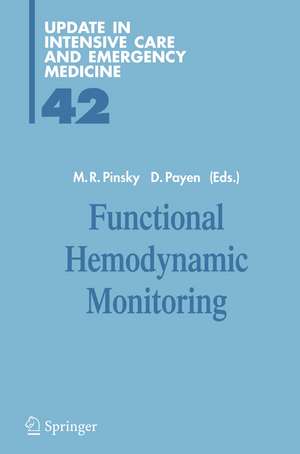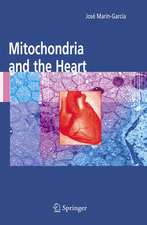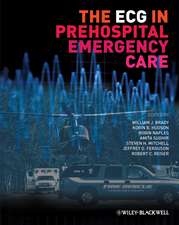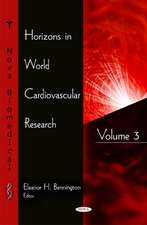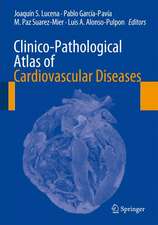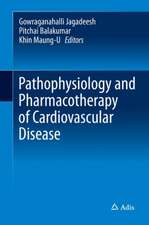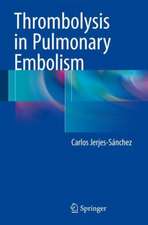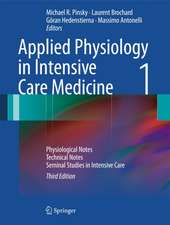Functional Hemodynamic Monitoring: Update in Intensive Care and Emergency Medicine, cartea 42
Editat de Michael R. Pinsky, Didier Payenen Limba Engleză Hardback – 19 oct 2004
| Toate formatele și edițiile | Preț | Express |
|---|---|---|
| Paperback (1) | 1795.92 lei 6-8 săpt. | |
| Springer Berlin, Heidelberg – 14 sep 2005 | 1795.92 lei 6-8 săpt. | |
| Hardback (1) | 2433.95 lei 6-8 săpt. | |
| Springer Berlin, Heidelberg – 19 oct 2004 | 2433.95 lei 6-8 săpt. |
Din seria Update in Intensive Care and Emergency Medicine
- 5%
 Preț: 735.83 lei
Preț: 735.83 lei - 5%
 Preț: 408.44 lei
Preț: 408.44 lei - 5%
 Preț: 713.33 lei
Preț: 713.33 lei - 5%
 Preț: 723.42 lei
Preț: 723.42 lei - 5%
 Preț: 722.69 lei
Preț: 722.69 lei - 5%
 Preț: 738.06 lei
Preț: 738.06 lei - 5%
 Preț: 725.24 lei
Preț: 725.24 lei - 5%
 Preț: 376.22 lei
Preț: 376.22 lei - 5%
 Preț: 724.70 lei
Preț: 724.70 lei - 5%
 Preț: 731.64 lei
Preț: 731.64 lei - 5%
 Preț: 723.78 lei
Preț: 723.78 lei - 5%
 Preț: 724.50 lei
Preț: 724.50 lei - 15%
 Preț: 589.95 lei
Preț: 589.95 lei - 5%
 Preț: 369.84 lei
Preț: 369.84 lei - 5%
 Preț: 715.35 lei
Preț: 715.35 lei - 5%
 Preț: 711.52 lei
Preț: 711.52 lei - 5%
 Preț: 724.14 lei
Preț: 724.14 lei - 5%
 Preț: 730.92 lei
Preț: 730.92 lei - 5%
 Preț: 375.34 lei
Preț: 375.34 lei - 5%
 Preț: 710.43 lei
Preț: 710.43 lei - 5%
 Preț: 367.84 lei
Preț: 367.84 lei - 5%
 Preț: 716.65 lei
Preț: 716.65 lei - 5%
 Preț: 378.97 lei
Preț: 378.97 lei - 5%
 Preț: 374.20 lei
Preț: 374.20 lei - 5%
 Preț: 1108.72 lei
Preț: 1108.72 lei - 5%
 Preț: 717.37 lei
Preț: 717.37 lei - 5%
 Preț: 2680.79 lei
Preț: 2680.79 lei - 5%
 Preț: 2111.90 lei
Preț: 2111.90 lei - 5%
 Preț: 404.54 lei
Preț: 404.54 lei - 5%
 Preț: 726.68 lei
Preț: 726.68 lei - 5%
 Preț: 715.35 lei
Preț: 715.35 lei - 5%
 Preț: 740.58 lei
Preț: 740.58 lei - 5%
 Preț: 717.73 lei
Preț: 717.73 lei
Preț: 2433.95 lei
Preț vechi: 2562.05 lei
-5% Nou
Puncte Express: 3651
Preț estimativ în valută:
465.75€ • 498.03$ • 388.32£
465.75€ • 498.03$ • 388.32£
Carte tipărită la comandă
Livrare economică 18 aprilie-02 mai
Preluare comenzi: 021 569.72.76
Specificații
ISBN-13: 9783540223498
ISBN-10: 3540223495
Pagini: 438
Ilustrații: XIV, 422 p.
Dimensiuni: 155 x 235 x 22 mm
Greutate: 0.79 kg
Ediția:2005
Editura: Springer Berlin, Heidelberg
Colecția Springer
Seria Update in Intensive Care and Emergency Medicine
Locul publicării:Berlin, Heidelberg, Germany
ISBN-10: 3540223495
Pagini: 438
Ilustrații: XIV, 422 p.
Dimensiuni: 155 x 235 x 22 mm
Greutate: 0.79 kg
Ediția:2005
Editura: Springer Berlin, Heidelberg
Colecția Springer
Seria Update in Intensive Care and Emergency Medicine
Locul publicării:Berlin, Heidelberg, Germany
Public țintă
Professional/practitionerCuprins
Functional Hemodynamic Monitoring: Foundations and Future.- Therapeutic goals.- Defining Hemodynamic Instability.- Determinants of Blood Flow and Organ Perfusion.- Determining Effectiveness of Regional Perfusion.- Microcirculatory and Mitochondrial Distress Syndrome (MMDS): A New Look at Sepsis.- ‘Adequate’ Hemodynamics: A Question of Time?.- Limits and Applications of Hemodynamic Monitoring.- Arterial Pressure: A Personal View.- Central Venous Pressure: Uses and Limitations.- Pulmonary Artery Occlusion Pressure: Measurement, Significance, and Clinical Uses.- Cardiac Output by Thermodilution and Arterial Pulse Contour Techniques.- Clinical Value of Intrathoracic Volumes from Transpulmonary Indicator Dilution.- Methodology and Value of Assessing Extravascular Lung Water.- Arterial Pulse Contour Analysis: Applicability to Clinical Routine.- Arterial Pulse Power Analysis: The LiDCO? plus System.- Esophageal Doppler monitoring.- Splanchnic Blood Flow.- Measurement of Oxygen Derived Variables and Cardiac Performance.- Microcirculatory Blood Flow: Videomicroscopy.- Mixed Venous Oxygen Saturation (SvO2).- Central Venous Oxygen Saturation (ScvO2).- DO2/VO2 relationships.- Cardiac Preload Evaluation Using Echocardiographic Techniques.- Right Ventricular End-Diastolic Volume.- Assessment of Fluid Responsiveness.- Fluid Therapy of Tissue Hypoperfusion.- The Use of Central Venous Pressure in Critically Ill Patients.- Arterial Pressure Variation during Positive-pressure Ventilation.- Arterial Pulse Pressure Variation During Positive Pressure Ventilation and Passive Leg Raising.- Development of Treatment Algorithms.- Standardization of Care by Defining Endpoints of Resuscitation.- Protocolized Cardiovascular Management Based on Ventricular-arterial Coupling.- Cost Effectivenessof Monitoring Techniques.
Notă biografică
Michael R. Pinsky, MD is a professor of Critical Care medicine, Bioengineering and Anaesthesiology at the University of Pittsburgh and Dr hc from the University of Paris (La Sorbonne). He is considered an expert in hemodynamic monitoring, cardiovascular and pulmonary physiology and the treatments of cardio-respiratory diseases, including septic shock, ARDS and transplantation.
Didier Payen, MD is a professor and chairman of Anaesthesiology and Critical Care Medicine at Laribosiere Hospital, Paris and the president of the European Society of Intensive care Medicine. He is considered an expert in hemodynamic monitoring, organ transplantation, nitric oxide metabolism and treatment and cardiovascular physiology.
Didier Payen, MD is a professor and chairman of Anaesthesiology and Critical Care Medicine at Laribosiere Hospital, Paris and the president of the European Society of Intensive care Medicine. He is considered an expert in hemodynamic monitoring, organ transplantation, nitric oxide metabolism and treatment and cardiovascular physiology.
Caracteristici
Takes a novel, practical approach to analyzing hemodynamic monitoring, focusing on the patient and outcomes based on disease, treatment options and relevance of monitoring to direct patient care Will rapidly become a classic in the approach to patient monitoring and management during critical illness
